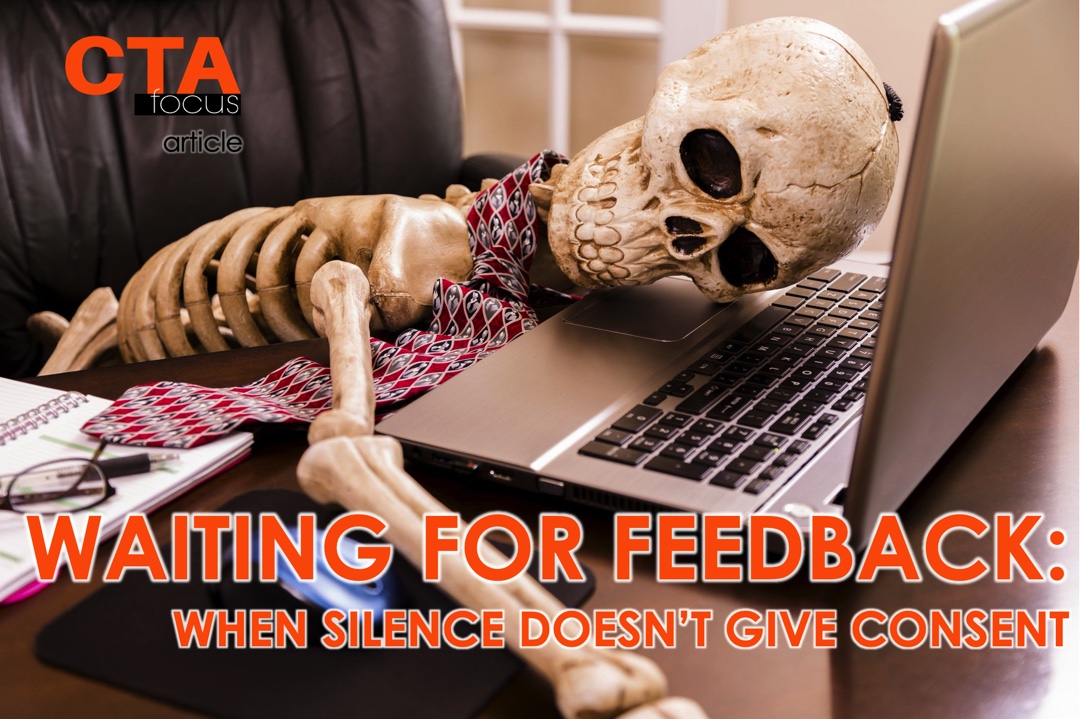
WAITING FOR FEEDBACK: WHEN SILENCE DOESN’T GIVE CONSENT
Silence gives consent – wouldn’t that be perfect if this old saying were applicable to contract negotiation operations? How easy would that be just to send the clinical trial agreement to the site, wait for a couple of days or weeks, and start signature process. A fat chance! Silence in negotiations means a lot, but never something positive. Let’s see why the sites become silent and how to manage this silence.
Lack of feedback from the sites, especially during the pandemic, is something faced by many negotiators across the globe. Longer-than-usual review timelines result in site activation delays, frustration of the project teams and sponsors, and – more importantly – delays for the patients in accessing innovative treatment.
When it comes to the pandemic, the negotiator seems to have very limited capacity to speed up the negotiation process. Healthcare system in many regions is experiencing extraordinary pressure with a lot of hospitals being converted into COVID-treatment facilities, slowing down or even putting on hold the current clinical trials and/or those that are in the start-up phase.
It doesn’t mean though the negotiator cannot follow-up with the site, but the style of the follow-up should be switched from less asking into more supporting. Be supportive to the sites, and the sites will be supportive in return. This is general rule, however, but it is of upmost importance nowadays. If the site’s silence is resulted from the pandemic, it should be totally understood, still the pandemic will go away sooner or later, and the connection with the site cannot be lost.
Apart from pandemic, the site can slow down due to change of their priorities. Especially large hospitals/institutions often face those ‘agonies of choosing’ – when having a lot of studies on their plate, they have to make difficult decisions which studies are the priority, basing on the site’s technical and staff capacity and the number of the potential patients. It is highly unlikely the site mentions this ‘downgrade of the priority’ to the negotiator, however the negotiator can discuss this with the CRA (Clinical Research Associate) working with this particular site, or check this with the site directly using the best of diplomatic skills.
The list of the reasons why the site is not responsive can be very long. This can be site-specific style, internal communication gaps, incorrect communication strategy applied by the negotiator, lack of resources, low interest in the study, holiday periods, and so on and so forth.
Core responsibility of the negotiator dealing with the non-responsive sites in no way shall be limited to finding the reason of non-responsiveness, but to mitigating, solving this problem or at least trying to solve it.
Communication with the site shall be balanced at all times. Sending short weekly follow-up emails just to have another line in the tracker never leads to the good result. It is no good to call the site every other day knowing the pressure won’t work. Be balanced: supportive, demanding if appropriate, able to take a step back – but always involved.
